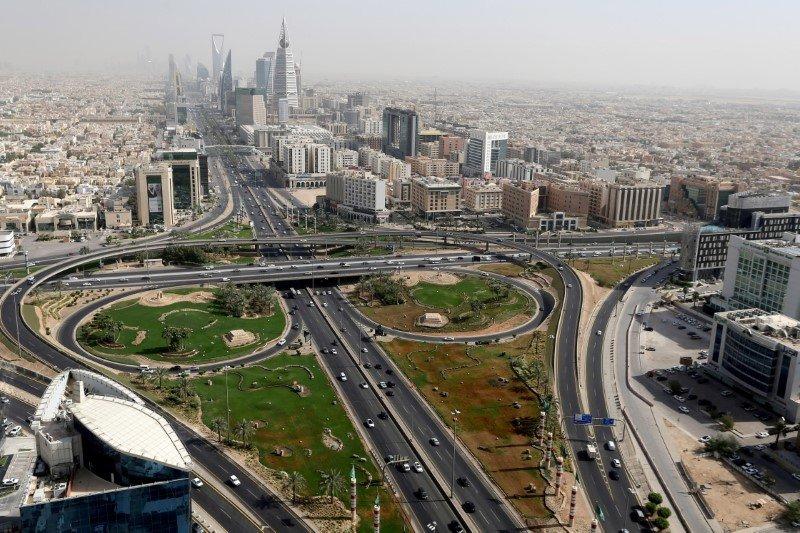RIYADH: Saudi Arabia’s gross domestic product is expected to grow at the fastest rate in almost a decade at 7.6 percent with inflation likely to remain at 2.8 percent in 2022, the International Monetary Fund’s Article IV Consultation report has predicted.
Saudi Arabia is rebounding strongly from the pandemic-induced recession, driven by the Kingdom’s pro-business reforms and higher oil prices, it said.
Despite higher prices for imported commodities, the inflation rate in the Kingdom will be contained at 2.8 percent in 2022, as the central bank tightens policy in line with the US Federal Reserve, the report added.
“Liquidity and fiscal support, reform momentum under Vision 2030, and high oil prices and production helped the economy recover with robust growth, contained inflation and a resilient financial sector,” the IMF said in a press release.
HIGHLIGHTS
The proportion of Saudi women in work has doubled in the past four years to 33% in the first quarter of 2022.
83 percent of the adult population now own a bank account as of 2021, up from 71 percent in 2019.
At a press conference on Wednesday, Amine Mati, assistant director of the IMF, predicted that Saudi Arabia is expected to attain a budget surplus of about 5.5 percent of its gross domestic product, as its surplus in the second quarter hit $21 billion.
Mati elaborated that effective utilization of the Kingdom’s growing surplus will be achieved by making sure that the budget allocations are respected. He added that social spending should remain in line with the increase in surplus, which would then be re-injected into the economy.
“Implementing a fiscal rule will help sustain a fiscal anchor over the medium term and integrated asset liability management framework will help the government assess Saudi Arabia’s fiscal stance and position,” said Mati.
The IMF report added that the increase in interest rates is expected to have only a limited impact on the Saudi economy.
When addressing the rising inflationary pressures, Mati stated that “the exchange rate peg to the US Dollar continues to serve Saudi Arabia.”
“Inflation is contained, despite increased international commodity prices, because of low pass through,” said Mati. “The external position is expected to strengthen substantially, with the current account surplus reaching levels not seen in a decade.”
The IMF report added that the increase in interest rates is expected to have only a limited impact on the Saudi economy.
Mati explained that the increase of the value-added tax from 5 percent to 15 percent in the middle of the COVID-19 pandemic was essential in promoting non-oil revenue growth, and noted that tax administration measures also help sustain and accelerate tax revenues.
According to the report, the Public Investment Fund should focus on high return projects with private involvement, as it continues to implement giga-projects.
The report added that Saudi Arabia is taking impressive steps to improve the business environment, which will attract foreign investments.
It further stated that the proportion of Saudi women in work has doubled in the past four years to 33 percent in the first quarter of 2022, exceeding the 30-percent target set under the Vision 2030 plan.
Improvements in tax policy and revenue administration to raise more taxes from non-oil activities will help support fiscal consolidation in the Kingdom.
IMF
“Priorities to foster a more inclusive and green economy include increasing further women labor force participation, making sure PIF interventions play a catalytic role, strengthening governance, and rolling out the Saudi green initiative,” the IMF said in the report.
The impressive pace of digitization in the Kingdom has the potential to boost productivity and overall growth, it added.
“The surge in digital account openings and online mobile financial transactions during the pandemic has helped in improving financial inclusion — 83 percent of the adult population now own a bank account as of 2021, up from 71 percent in 2019,” it said.
Speaking at the conference, Mati stated that the advancement of digitalization translates to a more educated workforce that is better equipped for following up on future developments, which positively impacts the future of FDI.
According to the IMF, the Saudi Green Initiative, which was launched in 2021, requires policy measures to reduce greenhouse gas emissions and support greener growth.
The report concluded that Saudi Arabia’s economic outlook is strong, and the Kingdom’s long-term prosperity strongly depends on sustaining the reform momentum.



